Faculty Awards
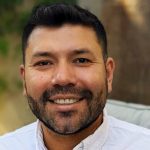 Cesar Favila, Assistant Professor of Musicology, received the ACLS Susan McClary and Rob Walser Fellowship in Music. His project is “Immaculate Sounds: The Musical Lives of Nuns in New Spain” which is the first book-length study on women’s music in colonial Latin America. Professor Favila shows that the sounds of the cloisters were “Immaculate Sounds,” and essential for the salvation of early modern society. He examines music sources from 17th- and 18th-century New Spain together with the rulebooks, devotional literature, and nuns’ biographies that regulated convent life, shining light on the musical lives of nuns and their agency. Professor Favila also was awarded a Mellon Emerging Faculty Leaders Fellowship from The Institute for Citizens and Scholars to support his project.
Cesar Favila, Assistant Professor of Musicology, received the ACLS Susan McClary and Rob Walser Fellowship in Music. His project is “Immaculate Sounds: The Musical Lives of Nuns in New Spain” which is the first book-length study on women’s music in colonial Latin America. Professor Favila shows that the sounds of the cloisters were “Immaculate Sounds,” and essential for the salvation of early modern society. He examines music sources from 17th- and 18th-century New Spain together with the rulebooks, devotional literature, and nuns’ biographies that regulated convent life, shining light on the musical lives of nuns and their agency. Professor Favila also was awarded a Mellon Emerging Faculty Leaders Fellowship from The Institute for Citizens and Scholars to support his project.
 Sarah Beckmann, Assistant Professor of Classics, is a 2022 Rome Prize winner in ancient studies. Professor Beckmann’s research focuses on the architecture and decor of late antique villas with an emphasis on regional variations as well the relationship of the villa to the worker and wider community. Her related book is titled “The Villa in Late Antiquity: Roman Ideals and Local Identities.”
Sarah Beckmann, Assistant Professor of Classics, is a 2022 Rome Prize winner in ancient studies. Professor Beckmann’s research focuses on the architecture and decor of late antique villas with an emphasis on regional variations as well the relationship of the villa to the worker and wider community. Her related book is titled “The Villa in Late Antiquity: Roman Ideals and Local Identities.”
The Prize from the American Academy in Rome, includes a stipend and residency at the academy’s campus where she will join the other thirty-seven awardees announced this year.
 Lamia Balafrej, Associate Professor of Art History, received two fellowships. a Rome Prize and a Getty Scholar Grant. She won a Rome Prize Fellow at the American Academy in Rome in Fall 2022 and Winter 2023 and then in Spring 2023 at the Getty Research Institute in Los Angeles as a Getty Scholar Grant.
Lamia Balafrej, Associate Professor of Art History, received two fellowships. a Rome Prize and a Getty Scholar Grant. She won a Rome Prize Fellow at the American Academy in Rome in Fall 2022 and Winter 2023 and then in Spring 2023 at the Getty Research Institute in Los Angeles as a Getty Scholar Grant.
These fellowships allow Professor Balafrej to research and write her current book project, an examination of the intersected histories of slavery, technology, and the arts in the medieval period. The medieval Mediterranean, she contends, was marked by the diffusion of a notion of the corporeal instrument, used to conceptualize the labor of slaves and craftsmen, creating a discursive slippage between slave and machine. This was particularly true in frontier societies and zones of cultural encounter, regions that witnessed the concomitance of slave trade, technological innovation, and artistic efflorescence.
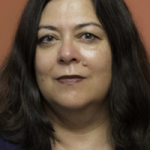 Charlene Villaseñor Black, Professor of Art History and Chicana/o Studies at UCLA, has been appointed as Oxford University’s sixth Terra Foundation for American Art Visiting Professor for 2021-22. The Terra Foundation Visiting Professorship promotes the study of American art from a global perspective at the University of Oxford and beyond, thanks to funding from the Terra Foundation for American Art. Each Visiting Professor engages in advanced research in the visual arts of the United States, delivers public lectures and organises symposia that encourage international research collaboration. They also offer courses to undergraduate and graduate students.
Charlene Villaseñor Black, Professor of Art History and Chicana/o Studies at UCLA, has been appointed as Oxford University’s sixth Terra Foundation for American Art Visiting Professor for 2021-22. The Terra Foundation Visiting Professorship promotes the study of American art from a global perspective at the University of Oxford and beyond, thanks to funding from the Terra Foundation for American Art. Each Visiting Professor engages in advanced research in the visual arts of the United States, delivers public lectures and organises symposia that encourage international research collaboration. They also offer courses to undergraduate and graduate students.
Professor Black is also the recipient of a Getty Foundation Grant for Pacific Standard Time 2024, “Verdant Worlds: Exploration and Sustainability across the Cosmos.” This project explores the intersections between the visual arts and science and is a collaboration between UCLA’s Center for Medieval & Renaissance Studies and Caltech’s Graduate Aerospace Laboratories. It explores the ways in which artists, scientists and imagineers informed each other, envisioning seemingly unimaginable futures, transforming fantasies into realities as they looked beyond known limits.
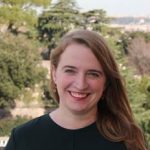 Catherine Bonesho, Assistant Professor of Near Eastern Languages & Cultures, has received a fellowship from the Frankel Center for Judaic Studies at the University of Michigan related to the study of Diversity in Second Temple Judaism for the 2021-2022 academic year. During the fellowship, she will work on her second book project Kings, Queens, and Caesars: Gentile Rulers in Early Jewish Literature. Her project integrates Classics and Jewish Studies by investigating the trope of non-Jewish rulers in early Jewish literature through case studies on the Jewish depictions of rulers like Alexander the Great, Titus, and Cleopatra.
Catherine Bonesho, Assistant Professor of Near Eastern Languages & Cultures, has received a fellowship from the Frankel Center for Judaic Studies at the University of Michigan related to the study of Diversity in Second Temple Judaism for the 2021-2022 academic year. During the fellowship, she will work on her second book project Kings, Queens, and Caesars: Gentile Rulers in Early Jewish Literature. Her project integrates Classics and Jewish Studies by investigating the trope of non-Jewish rulers in early Jewish literature through case studies on the Jewish depictions of rulers like Alexander the Great, Titus, and Cleopatra.
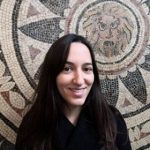 Adriana Vazquez, Assistant Professor of Classics, was awarded a prestigious Rome Prize for 2021-22 for her project “Window Reception: Brazilian Neoclassical Poetry and Lusophone Classics Across the Atlantic.” The American Academy in Rome annually selects Rome Prize winners by independent juries of distinguished artists and scholars through a national competition.
Adriana Vazquez, Assistant Professor of Classics, was awarded a prestigious Rome Prize for 2021-22 for her project “Window Reception: Brazilian Neoclassical Poetry and Lusophone Classics Across the Atlantic.” The American Academy in Rome annually selects Rome Prize winners by independent juries of distinguished artists and scholars through a national competition.
 Michael Cooperson, Professor of Near Eastern Languages & Cultures, won the 2020/21 Sheikh Zayed Award Translation Prize for his Arabic to English translation of Impostures by Al-Hariri. The Sheikh Zayed Awards are the most prestigious and lucrative awards in Arabic literature: winners of the translation category each receive a gold medal, a certificate of merit, and a prize of AED 750,000. The award praises Impostures, published by Library of Arabic Literature in 2020, as “a bold, mature and innovative approach to translation [which] enabled Michael Cooperson to understand Maqamat Al-Hariri more intimately than anyone else, and to appreciate it as a treasure of Arab heritage.
Michael Cooperson, Professor of Near Eastern Languages & Cultures, won the 2020/21 Sheikh Zayed Award Translation Prize for his Arabic to English translation of Impostures by Al-Hariri. The Sheikh Zayed Awards are the most prestigious and lucrative awards in Arabic literature: winners of the translation category each receive a gold medal, a certificate of merit, and a prize of AED 750,000. The award praises Impostures, published by Library of Arabic Literature in 2020, as “a bold, mature and innovative approach to translation [which] enabled Michael Cooperson to understand Maqamat Al-Hariri more intimately than anyone else, and to appreciate it as a treasure of Arab heritage.
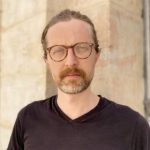 Associate Professor Luke Yarbrough, Department of Near Eastern Languages and Cultures, has received a fellowship from the Israel Institute for Advanced Studies at the Hebrew University of Jerusalem in the 2020-2021 Academic Year. In partnership with Professor Uriel Simonsohn of Haifa University, he has co-organized a research group whose project is titled “Cultural Brokerage in Pre-modern Islam“. Professor JESSICA GOLDBERG from the UCLA Department of History and Professor MARIA MAVROUDI from UC Berkeley’s Department of History are also part of the research group.
Associate Professor Luke Yarbrough, Department of Near Eastern Languages and Cultures, has received a fellowship from the Israel Institute for Advanced Studies at the Hebrew University of Jerusalem in the 2020-2021 Academic Year. In partnership with Professor Uriel Simonsohn of Haifa University, he has co-organized a research group whose project is titled “Cultural Brokerage in Pre-modern Islam“. Professor JESSICA GOLDBERG from the UCLA Department of History and Professor MARIA MAVROUDI from UC Berkeley’s Department of History are also part of the research group.
The group will explore the dynamic by which Islamic civilization was informed by cultural polycentricism and pluralism and which multiple groups and traditions took part in molding. A variety of individuals acting as cultural brokers who served as mediators between social and cultural groups were conduits of cultural transmission by transferring, mediating, embodying, and exchanging various social and cultural capitals, such as spiritual authority, erudition, kinship ties, legal capacities, and more.
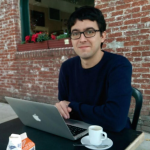 The American Council of Learned Societies (ACLS) has awarded Javier Patiño Loira (Spanish & Portuguese) a fellowship to complete his book Sharp Minds: Metaphor and the Cult of Ingenuity in an Age of Science (1639-1654).
The American Council of Learned Societies (ACLS) has awarded Javier Patiño Loira (Spanish & Portuguese) a fellowship to complete his book Sharp Minds: Metaphor and the Cult of Ingenuity in an Age of Science (1639-1654).
 Professor S. Peter Cowe (Near Eastern Languages and Cultures) awarded a doctorate honours cause by the Russian-Armenian University of Yerevan in 2018 for contributions to the analysis of Armenian culture in Late Antiquity and the early Medieval period that inscribe it within a broader Mediterranean and Near Eastern context.
Professor S. Peter Cowe (Near Eastern Languages and Cultures) awarded a doctorate honours cause by the Russian-Armenian University of Yerevan in 2018 for contributions to the analysis of Armenian culture in Late Antiquity and the early Medieval period that inscribe it within a broader Mediterranean and Near Eastern context.

